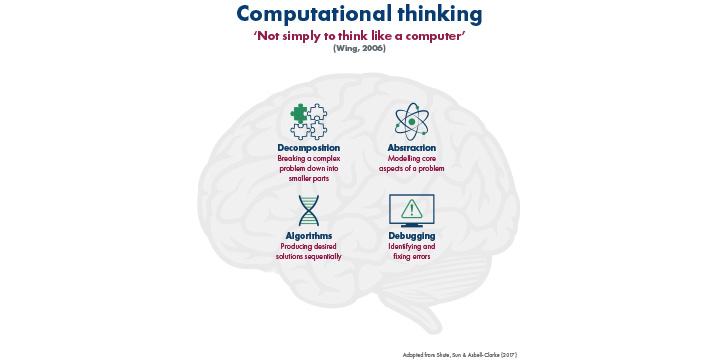02 May 2019

What does research suggest about approaches and tools that promote computational thinking in the classroom?
- CT is a fundamental skill useful for diverse subjects and can be promoted through various approaches and tools
- Further research is needed to investigate how these approaches and tools can be used effectively in the classroom to support the learning and teaching of CT
- Educational robotics can be used for learners as young as 4 to learn basic CT and programming concepts. This approach has been shown to enhance mathematics and science understanding that is beyond the development of CT skills
- It is important to consider learners’ developmental stages when using robotics tools to promote CT
- Visual programming languages are good introductory tools to deliver basic computer science concepts
- When using visual programming languages, teachers can encourage learners to share thought processes so that the focus is on thinking processes as well as output
- ‘Unplugged’ activities are alternative economical ways to promote CT without the use of a computer
View Espresso View in Chinese (simplified) View in Norwegian